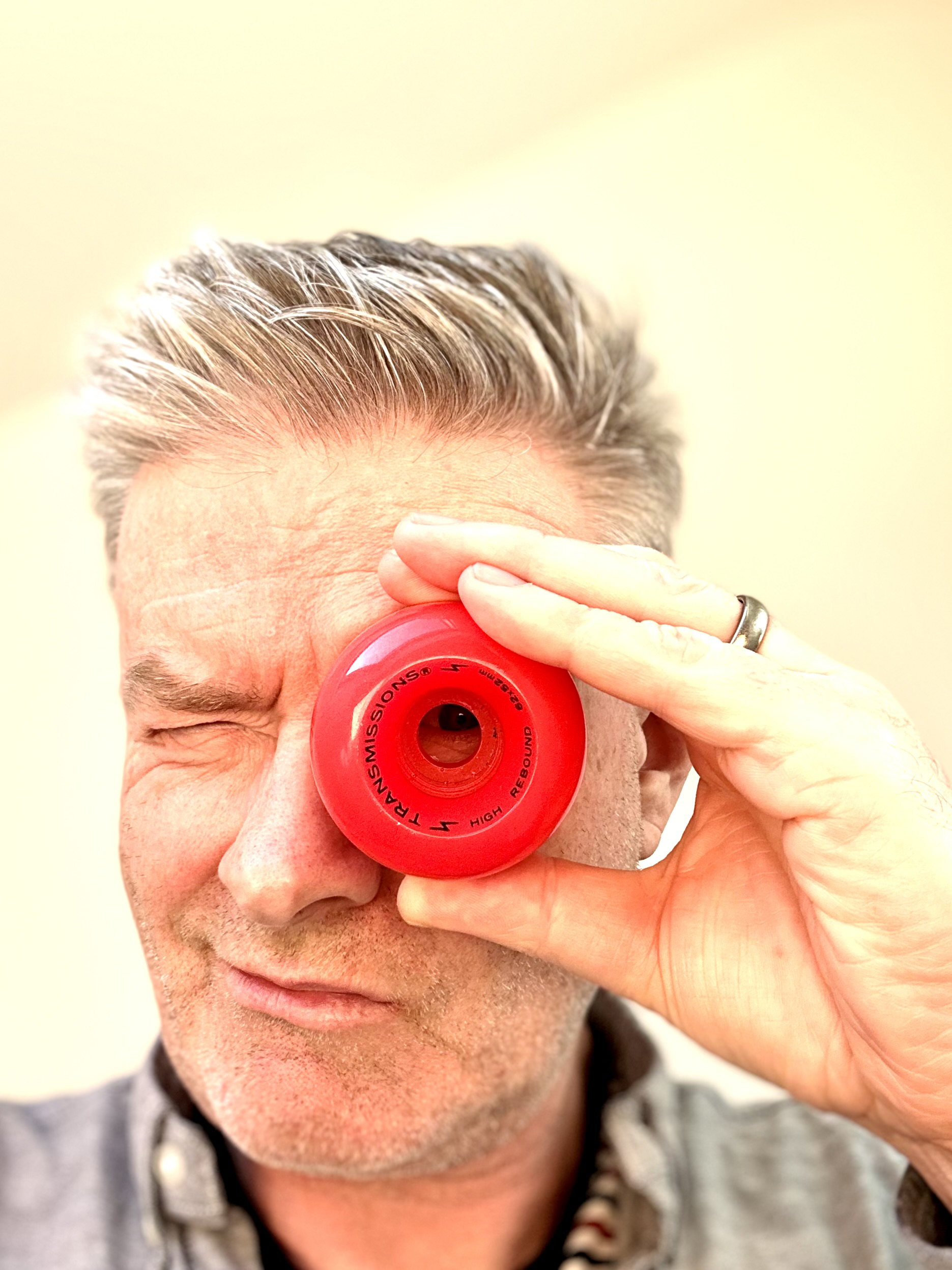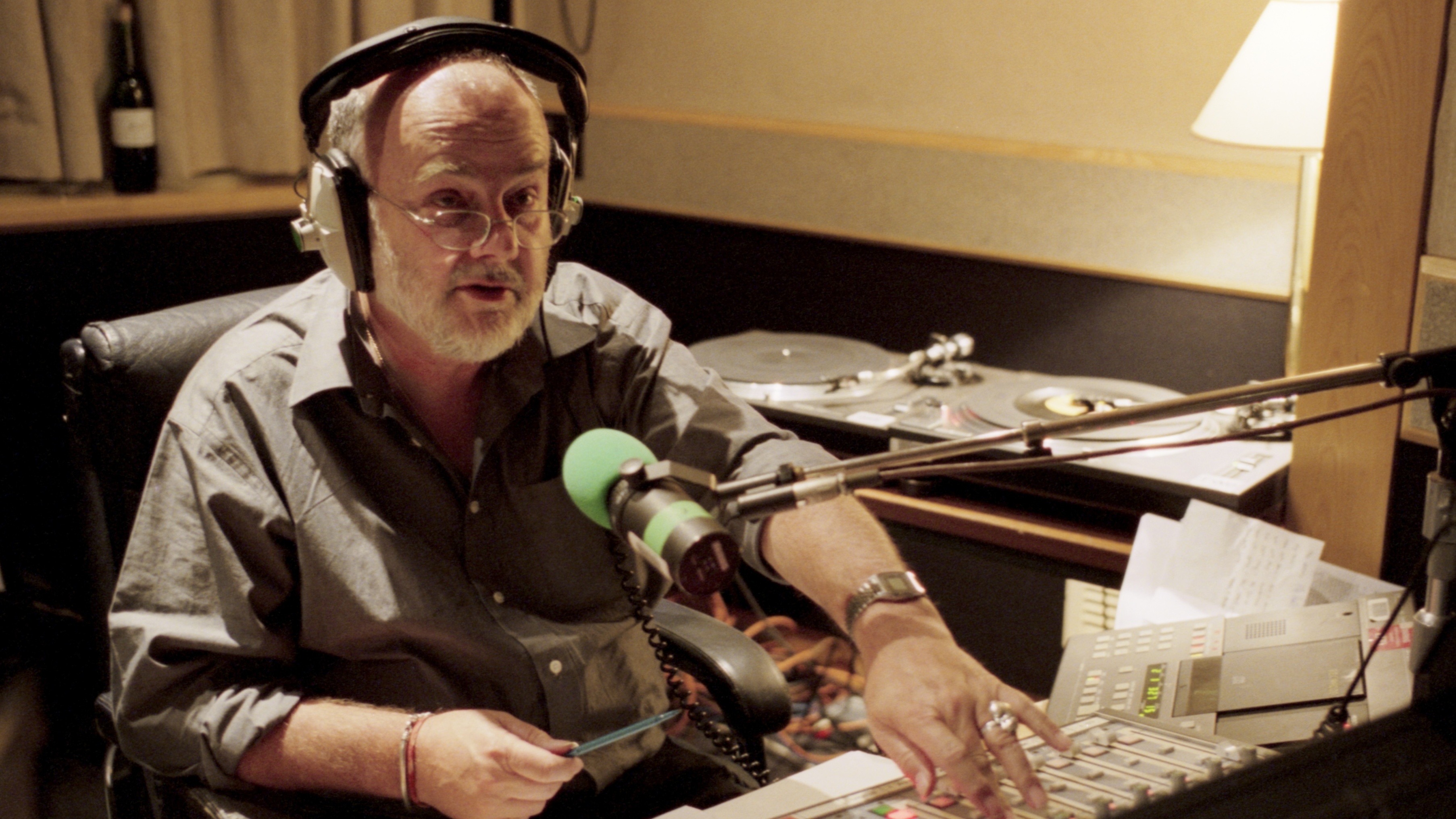From the highs to the lows and back to the highs, music has always sustained Mark Rae...

Mark Rae can vividly remember when he first realised music was powerful. In his suburban 1970s lounge in Northumberland, he would watch his parents play seven-inches on the family stereo and dance joyously. He also recalls his dad listening to the car radio and coming alive when a song from his youth was aired. “‘Summer in the City’ would come on and he’d sing-along and go nuts,” he smiles. “He’d bang his screwdriver and go: ‘Listen to that son.’ That was my introduction. Music is powerful. Music changes my dad’s mood to the point where he’s almost losing it, smacking the steering wheel to ‘Mr Blue Sky’. I saw that energy.”
Those epiphanal properties – music’s dynamism, the happiness it elicits, the carefree abandon of just dancing – sustained Rae through childhood into his teenage years in the 1980s when his catholic musical education included both The Smiths and Mantronix; LL Cool J and Loose Ends. He harks back to hip hop’s explosion in the UK but also house music’s first flush of youth – he would frequent the Leadmill in Sheffield where Winston and Parrot ruled supreme.
“I remember Graeme Park playing hip hop 12-inches: Super Lover Cee and Casanova Rud. That was an exciting time, which I kept in my heart when Grand Central and Fat City started. It was like: no, this story of dance music is all these elements. It’s go go, it’s hip hop, it’s reggae, it’s soul, it’s house, it’s all this stuff. And I never let go of it.”
Rae fortuitously landed in Manchester to study in 1987. “What a time to arrive!” He immediately took himself off to the city’s famous music shop, Johnny Roadhouse, where he bought a pair of Garrard belt-driven turntables and a Realistic mixer set in a black wooden box. He covered the decks in talcum powder (“Eventually I worked out that you needed slipmats, not talcum powder, which was a good breakthrough”) and he’d practice mixing Mantronix’s ‘Who is It?’ for hours on end.
“My friends would say: ‘Mark, are you not going to go out and do something social?’ ‘No, I’m practicing.’ Because every time I went out, it would be loads of Manchester students in ripped denim going ‘Hang the DJ’. I was like: ‘You’re not hanging me. I’m practicing.’” He listened religiously to Stu Allan on Sunday nights when the influential DJ would spin house, hip hop, soul and more on Piccadilly Radio and then head into Spin Inn to buy the sounds he’d heard. He occasionally frequented The Haçienda – he loved all the Warp bleep stuff and anything that was deep and trippy – but his head was really elsewhere.
“I remember being there one time and just telling my girlfriend at the time how much I loved my mum and saying we needed to go to the PSV to listen to reggae in the back room.”
It was this musical melting pot that led to Fat City, first the record shop in Affleck’s Palace market and then the label, and eventually the Grand Central imprint. The influential compilations ‘Frying the Fat’ and ‘Central Heating’ introduced the world to a collection of talent from Northern England including Aim, Mr Scruff, Only Child and Andy Votel, with the music traversing the hip hop, funk, soul, dub, jazz and house worlds that Rae espoused.

At the same time, Rae hooked up with his production partner Steve Christian. The pair were working in studios in Ducie House, when production engineer Christian walked past Rae’s room where the DJ was experimenting with a sample from Cherrelle’s ‘I Didn’t Mean to Turn You On’. “He said: ‘Why is that a 17-bar verse? and that’s out of tune.’ I was like, but it sounds good.”
The pair hit it off and by way of Rae’s energy and ideas allied to Christian’s production, engineering and musical skills, the duo initiated a successful partnership. “When those two worlds clash, they can be a fantastic combination because it’s control and wild energy; musical skill and musical sort of experimentation,” Rae explains. “I’d turn up with my bag of records and say: ‘Put these Biz Markie drums underneath this Weather Report sample. And then put these Paul Horn horns on there…’ Steve would be: ‘Hold on a minute.’ Slowing me down. I’d be in there on the coffee and the squidgy black going do this, do that. The energy was immense.”
Alongside the duo’s superb two albums, ‘Northern Sulphuric Soul’ and ‘Sleepwalking’ – across which the pair collaborated with the likes of Bobby Womack, The Pharcyde, Jeru the Damaja and Jungle Brothers – Rae was also a businessman, responsible for paying 20 people’s wages and clearing samples. “It was a lot. I used to have night terror from the stress.”
And much like Rae can recall the moment music’s alchemical powers were first revealed, he can also remember when its devious counterpoint – the business – spelled the end of his first act. In 2006, a disputed run-in with the Mechanical Copyright Protection Society, in which the MCPS argued Grand Central owed £80,000, forced Grand Central into voluntary administration. “I was breaking,” he recalls. “Not just emotionally, but psychologically. That’s something that I still have to deal with now. Think about what you’re trying to do, making emotional music and in the end it’s the accountants that kill you.” A month later he emigrated to America.

“It’s a big risk to move to Los Angeles when your business has failed,” he says. “But that’s neurodiversity and self-belief mixed together. I went there and my mental health couldn’t survive. I tried so hard, but everything came to a head, which was good because it revealed my true self.”
For three years he clung on, playing football with Robbie Williams and DJing with the likes of DJ Harvey and “the lovely” Heidi Lawden. In 2008, he was eventually diagnosed with bipolar (something he only publicly revealed earlier this year). “In the end, I realised I was too British, too English, too Northern,” he says. “I loved the people, but there wasn’t enough psychogeography to feed my inner creative self. I didn’t belong there.”
Upon his return to the UK, a new Rae & Christian album, ‘Mercury Rising’ was released in 2013. Since then, the partnership has remained dormant. “Steve is a brilliant musician and producer, but… put it this way I have no choice but to do art to survive mentally. It’s not so much of a demand for him. I’m quite jealous of that. He told me the last time he turned on his studio was when we did ‘Mercury Rising’. But who knows what might happen. The doors are always open in life.”
These days, Rae has cultivated a second act as a writer. He wrote his autobiography, ‘Northern Sulphuric Soulboy’ in 2016 (“I wanted to capture my story before I forgot it”), which was followed by his first novel, ‘The Caterpillar Club’ in 2021. His second novel, ‘New Town Ghosts’, a heart-warming tale of childhood friendship set during the long hot summer of 1976, is out now. A third book will complete the semi-autobiographical story of Simon Radcliffe. An accompanying emotionally-charged album complements the novel, much like similar efforts for his first two books.

Now living in Tunbridge Wells with his wife and son (whose delightful art adorns the cover of ‘New Town Ghosts’) Rae is content. “I’ve found my rhythm for this time of life,” he says. He’s also found a new battle: to represent neurodiversity in a positive light.
“A lot of the people I work with in the music industry are touched by this pie chart of difference and as I’m getting older, it’s my job to show that it is a power and a strength and that in your dark moments, remember there are people who have guided themselves to a positive outcome from the difference.”
This article first appeared in issue seven of Disco Pogo.




.svg)


.jpg)
